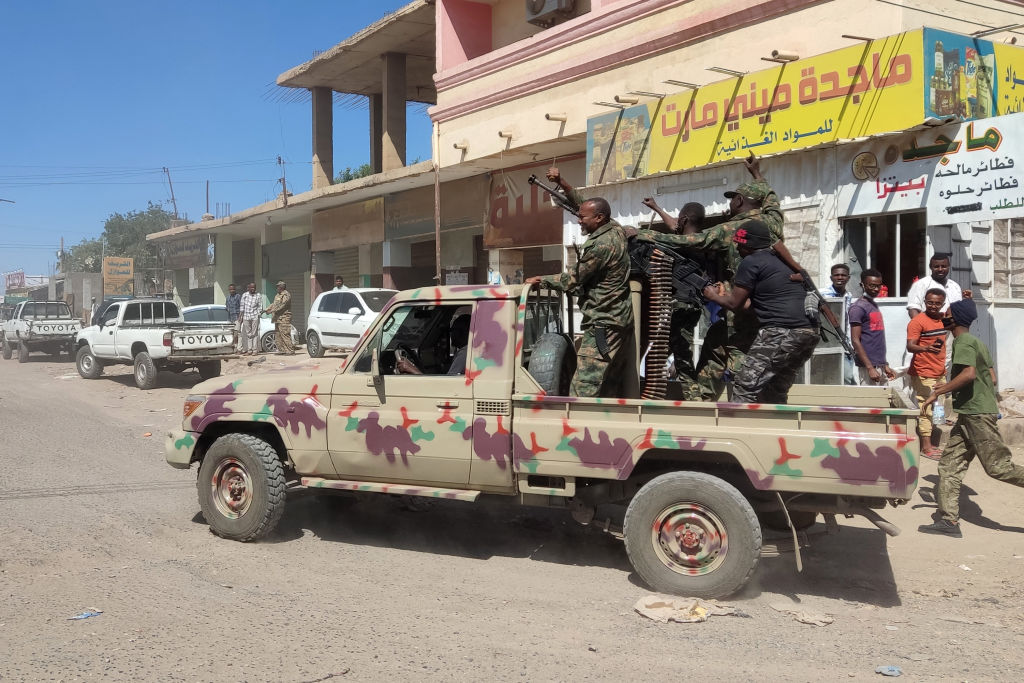ADF STAFF
As the civil war in Sudan raged into its ninth month, the Sudanese Armed Forces faced allegations of targeting civilians based on ethnicity.
A 24-year-old man using the pseudonym Osman Arbab told Al Jazeera that he and his younger brother were on a bus outside the northeastern town of Atbara when military intelligence stopped the bus and asked if any passengers were from Darfur, in western Sudan, or Kordofan, in the south. The cities are considered strongholds of the Sudanese Armed Forces’ (SAF) rival, the Rapid Support Forces (RSF).
The Arbabs are Kordorfan natives but had not lived there for years. They were quickly gathered with several other young men from the two cities and accused of spying for the RSF. They were taken to a facility in Atbara where for six days, Arbab said, SAF forces beat them with sticks to extract confessions. When that failed, they were shocked with electric cables.
Arbab remembered his brother, a diabetic, screaming in pain. “I was thinking: ‘My brother will die. … They’re going to kill us,’” Arbab told Al Jazeera.
After 12 days, Arbab paid for their release.
“I gave $50 for myself and $50 for my brother, and they finally let us go the next morning,” Arbab told Al Jazeera.
Both the SAF and RSF are accused of conducting such roundups across the country, sowing widespread distrust and hostility among civilians. According to Al Jazeera, most SAF battalions are composed of local non-Arab Nubians and local Arabs from Kordofan. There are broad perceptions that Arab Army officers secretly support the RSF.
In January, one SAF soldier from a nomadic Arab tribe in south Kordorfan was accused of collaborating with the RSF. A video verified by Al Jazeera showed the soldier tied to a ladder and hung by his feet, while a photo of the aftermath showed the victim was likely tortured to death.
“In South Kordofan, there has always been tension based on ethnic and tribal lines, even in the army,” said Hafiz Mohamad, a Sudanese researcher from South Kordofan state, told Al Jazeera.
Mohamad said that in Sudan’s previous civil wars, it was Nuba soldiers and civilians who were accused of collaborating with mainly non-Arab rebel groups. Now, Arabs are being targeted.
The RSF in mid-December gained control of Wad Madani, Sudan’s second-largest city. As the SAF left, its forces executed dozens of people from both Arab and non-Arab tribes, Al Jazeera reported.
A man using the pseudonym Mohamad Osman was among the tens of thousands of people who tried to flee Wad Madani. Military intelligence arrested him in late December and quickly learned that he was a member of the pro-democracy Kalakla resistance committee.
Osman told Al Jazeera he was taken to a secret detention center where he was tortured for days and forced to watch seven corpses rot on a concrete floor before a friend in the military bailed him out. Dozens of other Sudanese activists have endured similar treatment by the SAF as the RSF continues to claim territory.
“The first thing they asked [Osman] was if he was a member of the resistance committees,” a person using the pseudonym Fatma Noon, speaking for the Kalakla resistance committee, told Al Jazeera. “We know they’re targeting us.”
Many of the detained activists helped organize mass protests that led to the overthrow of former President Omar al-Bashir in April 2019. Their arrests are viewed as retribution by the SAF.
“There are some people in the army that say volunteers and activists cooperate with the RSF. But this is not correct,” a person using the pseudonym Yousif Omer, a resistance committee member in SAF stronghold Port Sudan, told Al Jazeera. “I believe these are political arrests. Many of the activists being taken were active during the revolution [that brought down al-Bashir]. Now, they are facing baseless accusations.”

